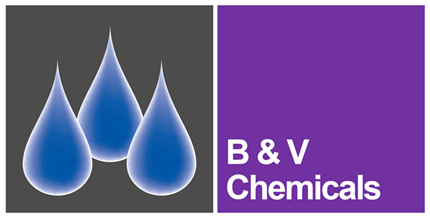A biocide is a chemical treatment formulated to effectively control microbial growth. It is critical to ensure the correct biocidal treatment regime is implemented and regular checks carried out to eliminate the risks associated with microbial growth, such as health hazards, heat transfer losses and under deposit corrosion.
In a previous blog, we outlined the most important factors to consider when choosing a biocide. In this blog post, we look specifically at selecting the right closed circuit biocides.
There are a number of factors which will adversely affect the microbial levels within closed-circuit systems which also need to be considered:
1. Pre-commission cleaning
For new systems, it is important to ensure that the system is clean and that the pre-commission cleaning process (as described in BSRIA BG29/ 2020) includes an appropriate biocide for use in a biocidal flushing process if this is required.
2. Concentration
It is important to ensure that a suitable closed-circuit biocide and closed-circuit inhibitor are present in the system at the correct concentration from first fill / pressure testing and on an ongoing basis.
3. Nitrite-based formulation
A cost-effective neutral nitrite-based formulation which passivates quickly and is suitable for multi-metal systems containing aluminium such as Polyhib LC may be suitable. However, alternative products are available, so please contact our technical department for advice on the most suitable product for this purpose. If Polyhib LC is used as a holding charge when a system is filled, a suitable biocide must also be dosed.
4. Closed system chemistry testing and microbiological monitoring
As part of an ongoing maintenance regime, closed system chemistry testing and microbiological monitoring of the system is essential. Shock dosing of an appropriate biocide in response to high bacterial numbers should ensure control of microbial numbers is achieved.
5. Biocide sensitivity analysis
Over time, it is possible that resistance may develop to a particular biocide and a change of biocide dosing regime may be required. With certain problematic systems, it may be necessary to carry out a biocide sensitivity analysis to determine which biocide will be most effective. Customers can submit a sample for biocide sensitivity analysis to our on-site lab and we can carry out the analysis on your behalf. Please contact us for further details and pricing for this testing service.
6. Biodispersants
Where high levels of bacteria and a build-up of biofilm is present, dosing an effective biocide in conjunction with a compatible biodispersant such as BV167 or BV1455 may be needed. It is important to consider where this biofilm is going to go in a system as it is removed from the metal surfaces. If a system has strainers/filters dispersed throughout the system, these will need to be inspected and cleaned frequently after dosing to remove dislodged biofilm. If the system contains small bore pipework and no strainers or filters, blockages may occur. Addition of a biodispersant is therefore not suitable for all systems.
7. Temperature
If the temperature is consistently above 60°C in all areas of a fully circulating LPHW (Low Pressure Hot Water) system, a biocide is not generally required. If such a system is in seasonal use, it is recommended that a biocide is added and allowed to circulate throughout the system before the system is switched off. BSRIA BG 50 recommends a minimum period of circulation for heating and cooling circuits of one hour per day, even for seasonally used systems.
8. Glycol
In a chiller system containing glycol, the levels must be maintained at an optimal concentration of 25% to prevent bacterial growth. This level of glycol is biostatic, i.e. it inhibits the growth of bacteria. Below this level, glycol can act as a nutrient for bacteria.
It is important to note that all biocidal products must be handled with caution and operatives must wear the correct personal protective equipment (PPE) at all times. The Safety Data Sheet (SDS) of each biocide must be consulted before use.
As with many other Water Treatment Chemical companies, B & V Chemicals have formulated a complete range of closed circuit biocides. For further advice on the correct selection of biocides in closed circuits systems or to obtain details on our Biocide sensitivity analyses, please contact our technical department.




